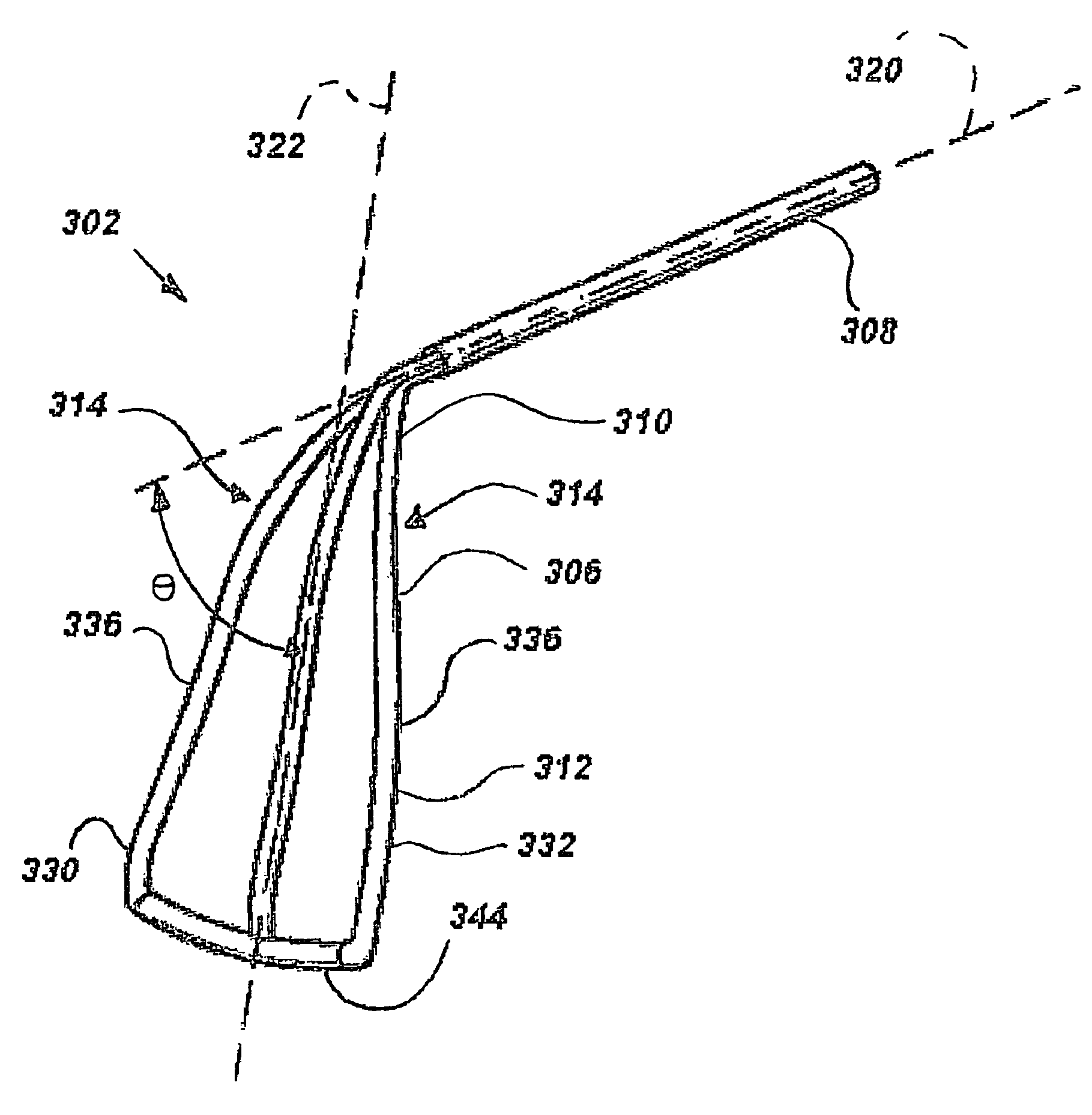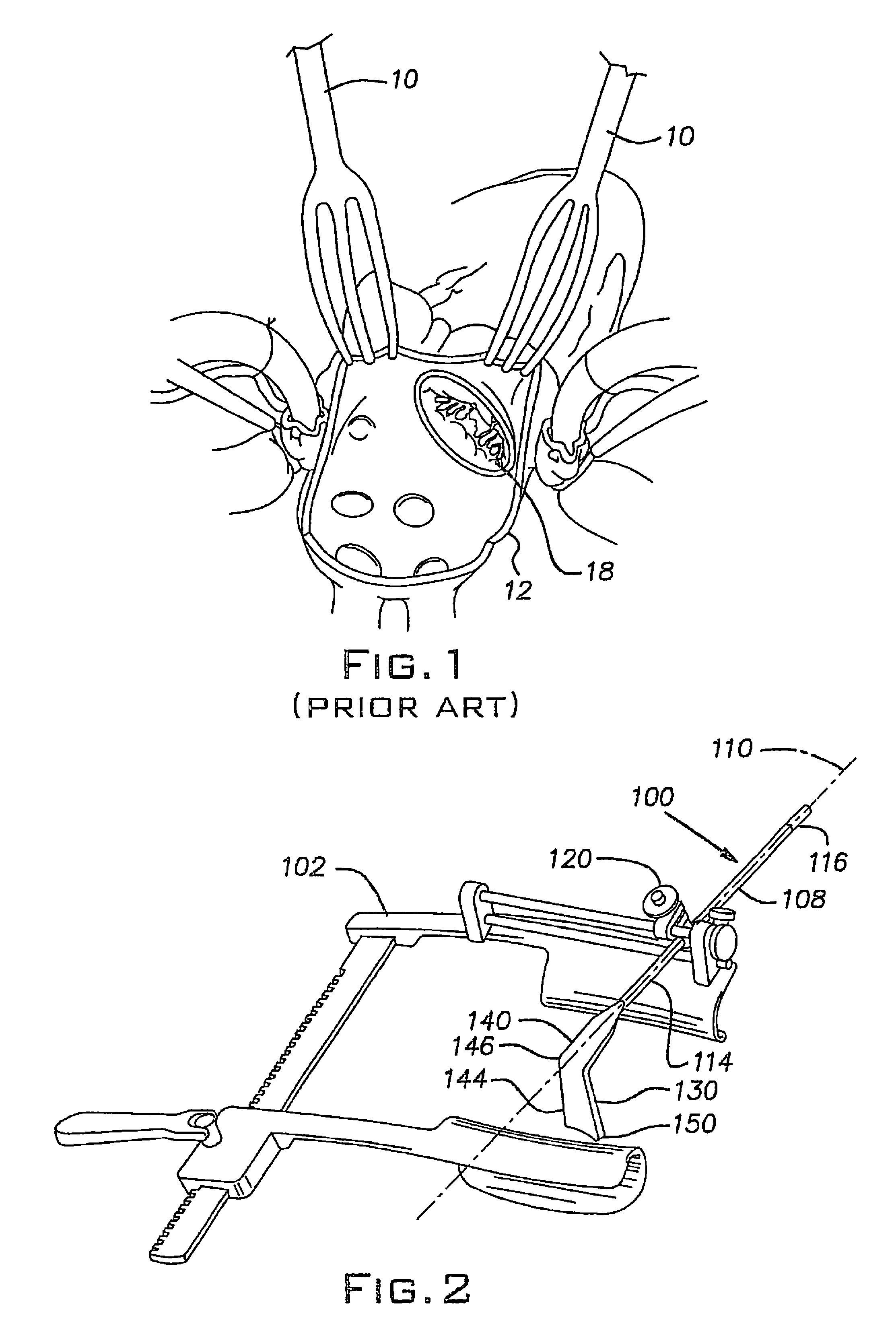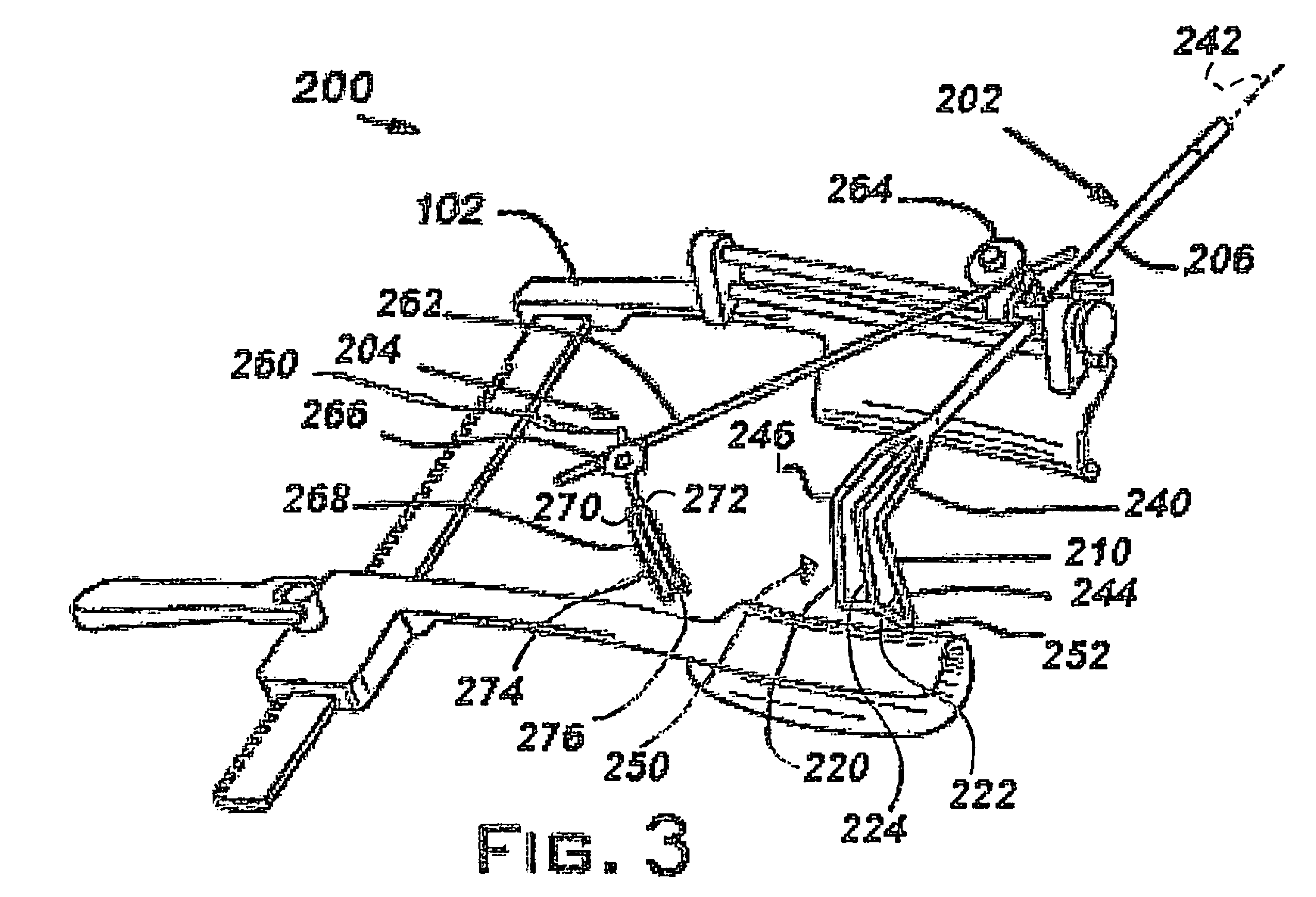Surgical retractors and method of operation
a technology for retractors and heart surgery, applied in the field of retractors for heart surgery, can solve the problems of increased mortality from heart disease, rapid and disorganized heartbeat, and increased risk of stroke, and achieves the effects of reducing the risk of strok
- Summary
- Abstract
- Description
- Claims
- Application Information
AI Technical Summary
Benefits of technology
Problems solved by technology
Method used
Image
Examples
first embodiment
[0032]A surgical retractor 100 comprising the present invention is shown in FIG. 2. The retractor 100 is a mitral valve retractor adapted for use with a thoracic retractor 102. Suitable thoracic retractors are commercially available from Kapp Surgical Instrument, Inc. (Cleveland, Ohio). The retractor 100 in accordance with the present invention is operable to retract and expose, for example, a mitral heart valve (not shown) and the inside cavity of a heart during an open-heart surgical procedure. A Maze procedure is an example of such an open-heart surgical procedure. The retractor 100 differs from the prior art generally in that it is configured to contact the mitral valve and optionally the adjacent heart tissues rather than the heart wall's inner surface.
[0033]Specifically, the retractor 100 includes a 0.6 centimeter (0.25 inch) diameter surgical stainless steel rod or handle 108, which defines a handle axis 110. The handle 108 has first and second ends 114, 116. The handle secon...
second embodiment
[0037]A retractor system 200 having first and second retractors 202, 204 and comprising the invention is shown in FIG. 3. The first retractor 202 has a handle 206 and a blade 210. The blade 210 differs from the solid blade 130 by including a plurality of spokes (preferably a first spoke 220, a second spoke 222, and a middle, third spoke 224).
[0038]The blade 210 is formed of a malleable metal and defines a proximal portion 240 that is generally co-planar with a handle axis 242, which is defined by the handle 206. The blade 210 further defines a distal portion 244 that is angled relative to the handle axis 242. A first bend 246 defines a boundary between the proximal and distal portions 240, 244. The spokes 220, 222, 224 of the distal portion 244 are thus also angled relative to the handle axis 242. The first and second spokes 220, 222 each have a second bend 250 so that the first and second spokes 220, 222 are about equal distances away from the center spoke 224 in generally opposite...
third embodiment
[0048]A retractor system 300 comprising the invention is shown in FIGS. 4-8. The retractor system 300 includes first and second retractors 302, 304.
[0049]The first retractor 302 includes a blade 306 mounted to a handle 308. The blade 306 has proximal and distal portions 310, 312 that are defined by a bend 314. The proximal and distal portions 310, 312 together measure about 19 cm (7.5 inches) long. The proximal portion 310 is centered on a handle axis 320, which is defined the handle 308. A clamp 322 releaseably secures the handle 308 to the thoracic retractor 102.
[0050]The distal portion 312 includes first, second and third spokes 330, 332, 334 that preferably have a length in a range of about 12 cm (4.75 inches) to about 13.3 cm (5.25 inches) long and are about 0.3 cm (0.1 inch) wide. The spokes 330, 332, 334 extend in generally straight lines from the first bend 314 at the intersection of the proximal and distal portions 310, 312 to a tip 344 at the opposite end of the distal por...
PUM
 Login to View More
Login to View More Abstract
Description
Claims
Application Information
 Login to View More
Login to View More - R&D
- Intellectual Property
- Life Sciences
- Materials
- Tech Scout
- Unparalleled Data Quality
- Higher Quality Content
- 60% Fewer Hallucinations
Browse by: Latest US Patents, China's latest patents, Technical Efficacy Thesaurus, Application Domain, Technology Topic, Popular Technical Reports.
© 2025 PatSnap. All rights reserved.Legal|Privacy policy|Modern Slavery Act Transparency Statement|Sitemap|About US| Contact US: help@patsnap.com



